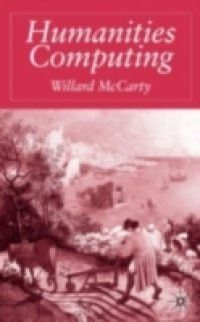The aim of this book is to provide a rationale for a computing practice that is of and for as well as in the humanities. It engages philosophical, historical, ethnographic and critical perspectives to show how computing helps us fulfil the basic mandate of the humane sciences to ask ever better questions. It explores the challenges of imagining and constructing new scholarly resources. It strengthens current practice by stimulating debate on the role of the computer across all disciplines, examining and developing the key notions of collaboration and interdisciplinarity. It gives practitioners a way of conceptualising their practice as an ongoing anthropological encounter, and it gives those with whom they interact a new way of understanding the interdisciplinary language of method. It sketches the complex amalgam of computer science and suggests the basis for a productive relationship. It outlines an agenda for the field to which individual scholars can contribute.

